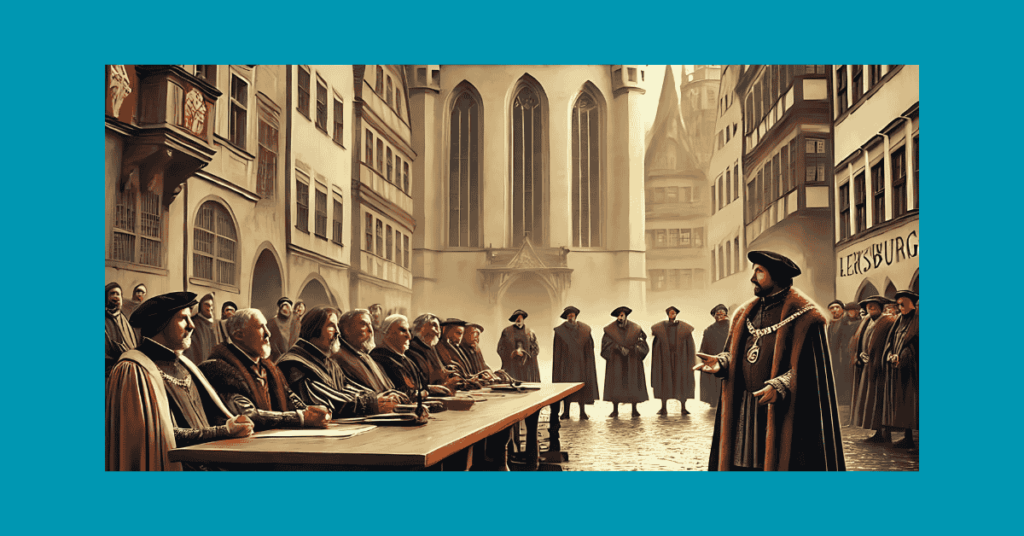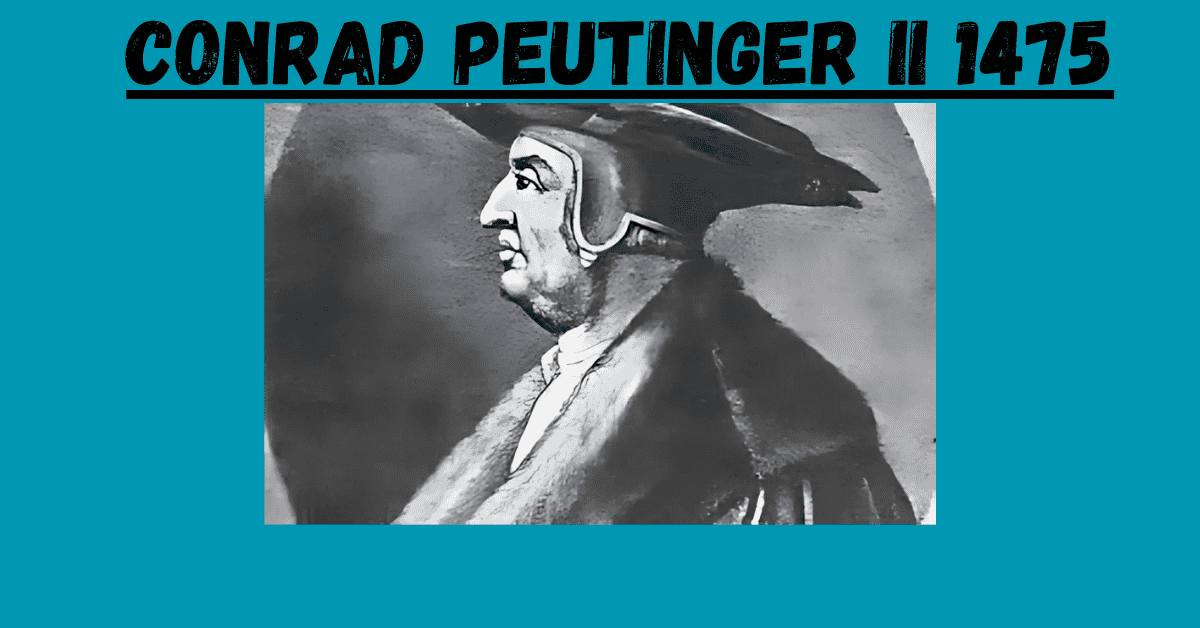Conrad Peutinger ii 1475 born in 1475 in Augsburg, Germany, was a prominent figure of the Renaissance era renowned for his diverse contributions as a scholar, diplomat, and humanist. His intellectual pursuits and diplomatic endeavors played a significant role in the preservation of ancient knowledge and the management of political relations in a turbulent period. This article explores Peutinger’s multifaceted career and enduring legacy.
Who Was Conrad Peutinger II?
Conrad Peutinger II was not just a name; he was a man of many talents. Born in the heart of Germany, he lived during a time of great change and discovery. The year 1475 was pivotal in his life, marking the beginning of an era where knowledge and culture flourished. Imagine a world where books were rare treasures, and learning was pursued with great passion! Conrad was a scholar, a collector of manuscripts, and a map enthusiast, contributing significantly to our understanding of geography and history.
His love for maps and knowledge began at a young age. While other children played outside, Conrad could often be found poring over ancient texts and maps, fascinated by the shapes of lands and the stories they told. His passion laid the groundwork for a lifetime of exploration and learning, shaping him into a prominent figure in his time.
Conrad Peutinger II Early Life and Education
Conrad Peutinger II was born in 1475 in Augsburg, Germany, into a prominent family with a rich intellectual heritage. His father, also named Conrad Peutinger, held an important civic position in Augsburg, which allowed young Conrad to be raised in an environment that fostered learning and intellectual pursuits. Growing up in such a household, Peutinger was exposed to the classics and developed a strong passion for ancient history, law, and geography.
Conrad Peutinger II Personal Life
Peutinger married Margarete Welser, a member of a prominent Augsburg family. Their marriage was both a personal union and a strategic alliance that reinforced Peutinger’s social and political standing.
Political Career and Achievements
Role in Augsburg City Council
The influence of Conrad Peutinger II did not apply only to scholarship and science, as he was also involved in the politics of the city of Augsburg. He became a member of the Augsburg City Council, where he lobbied for several policies which, according to him, satisfied his humanist aspirations. At first, he paid much attention to such issues as development of infrastructures, trade promotion, and increasing the living standards of the people in Augsburg. Although there were quite a number of hurdles that he encountered, Peutinger’s style of governing was such that he was able to carry out reforms that were quite useful to the city and remain a part of its landscape.
Diplomatic Efforts
Peutinger was not only engaged in the internal policy of cities, but he also sought the cooperation of some of the influential people of the time. Working with the Emperor Maximilian I and Charles V, he became quite important at the Diet of Augsburg and engaged in discussions concerning not only faith matters but also the most urgent ones prevailing at that point. Concerning their political activities, Peutinger proved to be another one of those who encouraged discussions between the adhered and secularistic powers, guaranteeing the protected peaceful existence within its perimeter.
Read More: chloe berger news
Peutinger’s Role in Augsburg’s Council and Politics

Conrad Peutinger II 1475 became engaged with Augsburg’s political life right off the bat in his profession, serving on the city committee. His legitimate mastery and humanist standards helped shape the strategies of the city. During his time in office, he assumed a pivotal part in prompting both Sovereign Maximilian I and later Ruler Charles V on issues of financial strategy and administration. One of Peutinger’s key commitments was in intervening the city’s situation during the Transformation.
Contributions Of Conrad Peutinger To Humanism
Conrad Peutinger made significant contributions to the humanist movement in several key ways:
- Promotion of Classical Knowledge: He dedicated his life to studying and reviving ancient Greek and Roman texts, which were central to the humanist philosophy.
- Collection of Artifacts: Peutinger amassed a large collection of Roman manuscripts, maps, and artifacts, helping to preserve classical culture for future generations.
- Publication of the Tabula Peutingeriana: His discovery and publication of the Tabula Peutingeriana, a vital Roman road map, showcased his commitment to sharing important historical knowledge.
- Educational Advocacy: He pushed for educational reforms that emphasized the study of classical literature and philosophy, believing it would enhance moral and intellectual development in society.
- Networking with Other Scholars: Peutinger corresponded with prominent humanists, such as Erasmus, facilitating the exchange of ideas and furthering the spread of humanist thought.
- Integration of Humanism in Politics: He applied humanist principles to his work in law and governance, advocating for fairness and justice based on classical ideals.
Contributions to Geography
Conrad Peutinger II’s contributions to geography were significant. He wasn’t just a collector; he actively studied and analyzed the maps he gathered. His work helped to improve the understanding of ancient Roman geography, particularly the famous Peutinger Table. This remarkable piece is a map that illustrates the Roman Empire and its roads, showing how interconnected the world was even back then.
Efforts in Preserving and Accessing the Map
Preserving the Conrad Peutinger II map is crucial for both historical research and public education. Given its age and fragility, careful measures are taken to protect this artifact from environmental damage. Archival institutions around the world are involved in the preservation process, ensuring that this valuable resource remains intact for future generations.
Advances in digital technology have made the map more accessible than ever before. High-resolution digital scans allow scholars and enthusiasts worldwide to study the map without risking damage to the original. Replicas and digital displays are frequently featured in exhibitions, bringing the map’s historical significance to a broader audience.
Challenges and Controversies
Political and Social Challenges
Peutinger’s career was not without challenges. He faced political opposition and social unrest during his tenure in public office. These difficulties tested his resilience and leadership abilities.
Controversial Issues
Some of Peutinger’s actions and decisions were controversial, attracting criticism from his contemporaries. These controversies provide a fuller picture of his complex and multifaceted character
Intellectual Legacy Of Conrad Peutinger II 1475
Conrad Peutinger’s intellectual legacy is marked by his dedication to the revival of classical knowledge during the Renaissance. He fostered connections with many prominent scholars of his time, sharing ideas and insights that helped shape the humanist movement.
His extensive collection of manuscripts, artifacts, and maps, including the famous Tabula Peutingeriana, played a crucial role in preserving ancient knowledge for future generations. Through his correspondence and advocacy for education, he promoted the importance of studying classical texts, making them accessible to a wider audience.
FAQs
Who was Conrad Peutinger II?
Conrad Peutinger II was a renowned Renaissance scholar, diplomat, and humanist from Augsburg, Germany. He is best known for his contributions to the preservation of classical knowledge, his work in politics, and his role in the discovery of the Tabula Peutingeriana, a Roman road map.
What is the Tabula Peutingeriana?
The Tabula Peutingeriana is an ancient Roman map discovered by Conrad Peutinger, illustrating the roads and transportation network of the Roman Empire. It is one of the most significant geographic artifacts of the time and offers insights into Roman infrastructure and travel routes.
What were Conrad Peutinger’s contributions to humanism?
Peutinger made major contributions to the humanist movement by promoting classical knowledge, collecting and preserving ancient manuscripts and artifacts, and advocating for educational reforms based on classical literature and philosophy. He also corresponded with notable humanists, like Erasmus.
What role did Conrad Peutinger play in Augsburg’s politics?
Peutinger served on the Augsburg City Council, where he focused on infrastructure, trade, and improving living standards. He also acted as a diplomatic advisor to Emperor Maximilian I and Charles V, helping mediate political and religious issues during the Reformation.
Conclusion
Conrad Peutinger II was a multifaceted figure whose contributions to Renaissance humanism, geography, and politics left an enduring legacy. His scholarly dedication preserved ancient Roman knowledge, especially through the Tabula Peutingeriana, one of the most important cartographic artifacts of the time. As a diplomat and politician, Peutinger shaped the policies of Augsburg and influenced the broader European political landscape through his work with emperors Maximilian I and Charles V.
Stay Connected: Internetchicks.blog
